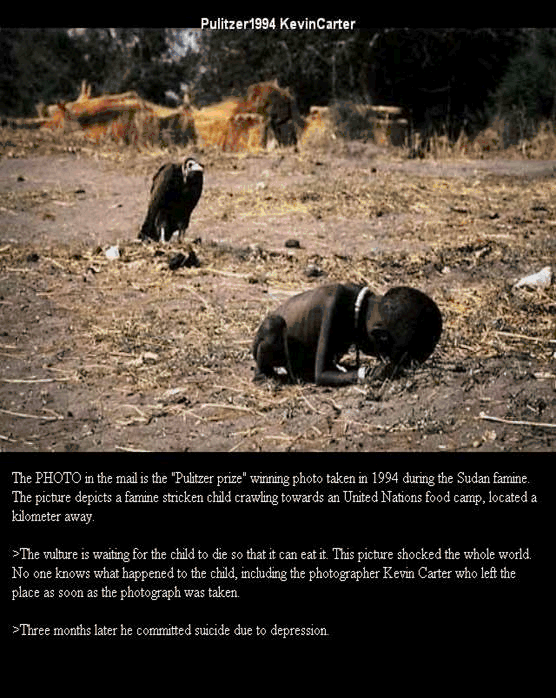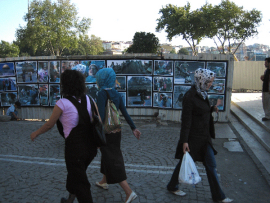
Naeem Mohaiemen: Copyrights, Bystanders, Image War
To be fair to Bracha Ettinger, the context of the mailing list has probably added to people's irritation, questioning and response.
So far, the Under Fire mailing list was discussion based. For the most part, people avoided posting portfolios of their work, or copying and pasting old essays.
Suddenly, there were this series of photos, with no explanation, or accompanying text. On top of that, the images were sent one by one in separate e-mails––which seemed unnecessary given the small size of the images (you can always post the whole lot on flickr and include a URL). In that context people had no choice but to focus on the copyright line, and the tempest in a teacup ensued.
Bracha's offense seems to be to have put the copyright line so boldly under the image. But people use images like this all the time in gallery walls (perhaps even this week @ Art Basel Miami, which Businessweek this week dubbed "the cultural Davos" :-/ ), and because they are more coy in the manner in which they present the work, they don't get flak.
So perhaps better to talk in macro context, not about this particular work.
Thinking of this debate around copyright of images of suffering, I'm reminded of Kevin Carter. His image of the vulture stalking the famine victim won him a Pulitzer, money, and fame. The controversy over why Carter did not nothing to aid the child was directly proportional to the amount of fame he garnered from that one image.
http://www.mukto-mona.com/Articles/kevin_carter/hungry%20child_1.jpg
 The St. Petersburg (Florida) Times wrote "The man adjusting his lens to take just the right frame of her suffering, might just as well be a predator, another vulture on the scene."
The St. Petersburg (Florida) Times wrote "The man adjusting his lens to take just the right frame of her suffering, might just as well be a predator, another vulture on the scene."
Carter responded in an interview: "I am zooming in on a tight shot of the dead guy and a splash of red. Going into his khaki uniform in a pool of blood in the sand. The dead man's face is slightly gray. You are making a visual here. But inside something is screaming, "My God.' But it is time to work. Deal with the rest later. If you can't do it, get out of the game."
Was Carter's suicide 3 months later a result of survivor guilt? His suicide note read in part: "I am haunted by the vivid memories of killings & corpses & anger & pain ... of starving or wounded children, of trigger-happy madmen, often police, of killer executioners"
The Carter case came back recently in the reaction the garish media coverage of an Islamist activist who was beaten to death by opposition activists during the ongoing controversy over Bangladesh's 2007 elections.
See the thread "Bleeding Bangladesh" here: http://rumiahmed.wordpress.com/2006/10/28
Zafa Noor wrote about this media coverage:
"Meanwhile the reporters are doing their job….just reporting….not helping the victims…This one was not just another death, this one was witnessed by journalists. There were more than half a dozen reporters with cameras to shoot the beating. It showed that in the video footage. My problem is wouldn’t it have been a more humane thing to try to stop those attackers and not worry about how many “good shots” they got."
This is a slightly different conversation than the one we started with, which was partially about whether you can own copyright over suffering, violence, confrontation, etc. Here the terrain shifts to journalism and ideas of "responsibility". But journo code of ethics recommend journalists to not get directly “involved” in the situation (thus becoming the story or manipulating the outcome) but rather continue documenting. Of course people break this rule based on their own momentary reaction all the time, but when they "do not help" that provokes a different outrage.
Perhaps we can find a discussion space that explores the convergences between the issues of copyright, responsibility and neutrality?
> Naeem Mohaiemen

